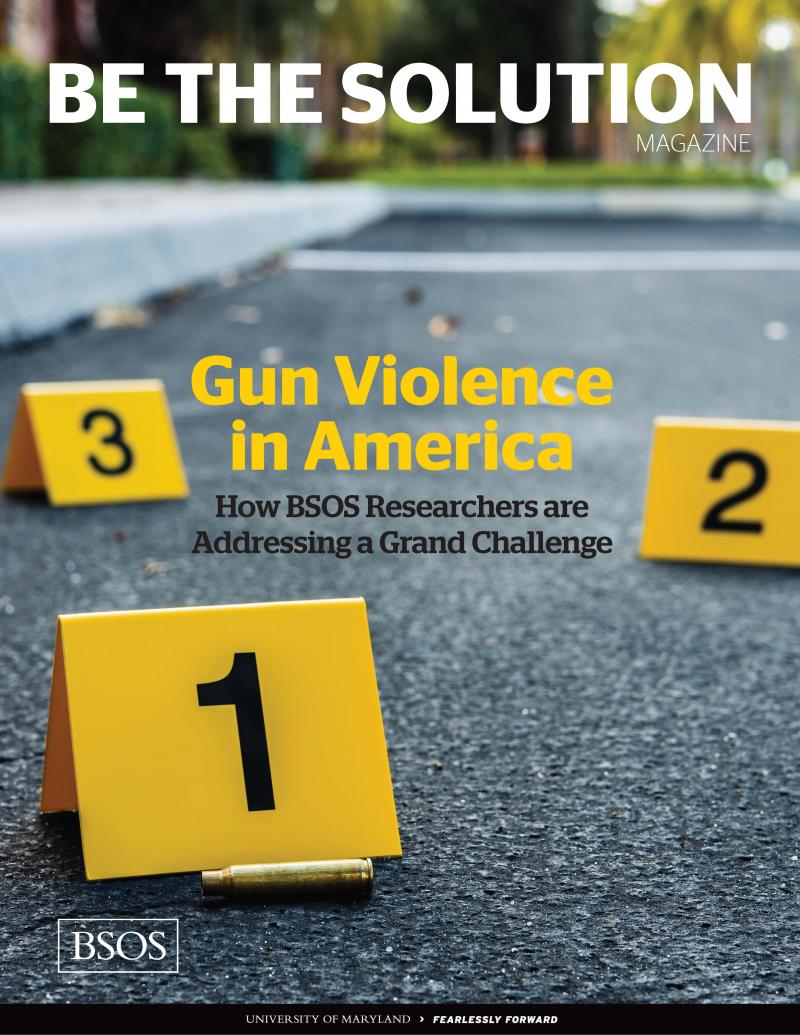History and Highlights
The College of Behavioral and Social Sciences has a rich and complex history, dating back more than 100 years. In 1986, the college as we now know it formed when a number of academic divisions reorganized and split into fourteen college. BSOS initially included the Departments of African American Studies, Anthropology, Economics, Geography, Government and Politics, Hearing and Speech Sciences, Criminology and Criminal Justice, Psychology, and Sociology. Murray Polakoff served as head, now known as dean, of the college.
1921
The College of Arts and Sciences forms as an outgrowth of the School of Liberal Arts; Thomas M. Spence is named acting dean. Residing in Morrill Hall, the College of Arts and Sciences includes the departments of economics, sociology, history and political science.
1923
The College of Arts and Sciences separates into five divisions, including the Division of Humanities, Division of History and Social Sciences, and Division of Philosophy. The departments of economics, business administration, history, political science and sociology are placed under the Social Sciences Division, while psychology is placed in the Division of Philosophy.
1929
Thomas H. Taliaferro is named acting dean of the College of Arts and Sciences.
1936
The newly constructed College of Arts and Sciences Building opens for its first semester of classes; the building is now known as Francis Scott Key Hall
1938
L. B. Broughton becomes dean of the College of Arts and Sciences. The Division of Humanities under the College of Arts and Sciences adds the Hearing and Speech Department.
1944
The Hearing and Speech Clinic is established.The College of Arts and Sciences appoints J. Freeman Pyle acting dean.The College of Business and Public Administration begins offering geography classes in its Natural and Human Resources Department.The departments of government and politics and geography move to the College of Business and Public Administration under the Division of World Economics.
1951
Charles Manning is appointed associate dean of the College of Arts and Sciences.
1955
The College of Arts and Science Building is renamed Francis Scott Key Hall.
1959
The Speech Department begins a program in speech therapy.
1966
Charles Manning, former associate dean, is named dean of the College of Arts and Sciences.The College of Arts and Sciences offers anthropology classes under the Department of Sociology. Taliaferro Hall, Morrill Hall and Francis Scott Key Hall house all the departments within the College of Arts and Sciences.
1968
Anthropology forms as an independent department under the College of Arts and Sciences. The sociology department offers a program in criminology.
1972
The Division of Behavioral and Social Sciences forms as one of the five academic divisions at the university. This division consists of academic units formerly administered by the College of Arts and Sciences and the College of Business and Public Administration. Academic units within the division include: Afro-American studies, Bureau of Business and Economic Research, Bureau of Governmental Research, economics, geography, government and politics, hearing and speech sciences, Institute of Criminal Justice and Criminology, Institute of Urban Studies, linguistics, psychology and sociology.
1973
The Board of Regents approves a proposal for Afro-American Studies to offer a B.A. degree
1974
Dr. Mary Frances Berry (pictured), chair of Afro-American studies and interim chair of the Behavioral and Social Sciences Division, is promoted to provost of the division. The appointment came from Chancellor Charles E. Bishop, vice chancellor for academic planning and policy. In a memo, Chancellor Bishop notes that this appointment gives Dr. Berry the “highest office in academia held by a Black woman.
1976
Renowned economics professor and department chair Dudley Dillard is named acting provost of the Division of Behavioral and Social Sciences when Dr. Mary Frances Berry leaves to become chancellor of the University of Colorado at Boulder
1977
Murray Polakoff is named provost of the Division of Behavioral and Social Sciences.
1986
The College of Behavioral & Social Sciences forms when the five academic divisions are reorganized and split into fourteen colleges. The College of Behavioral & Social Sciences includes the departments of: African American studies, anthropology, economics, geography, government and politics, hearing and speech sciences, criminology and criminal justice, psychology, and sociology. Murray Polakoff remains as head, now known as dean, of the College.
1991
Irwin Goldstein becomes dean of the College of Behavioral and Social Sciences.
1993
The Joint Program in Survey Methodology is established in the College of Behavioral and Social Sciences The Baha’i Chair for World Peace is established, which is dedicated to developing and applying material and knowledge in cooperative pursuits of global peace, social and economic justice, and human security.
1994
The College of Behavioral & Social Sciences sponsors College Park Scholars International Studies, one of the four inaugural programs in College Park Scholars, a two-year living and learning program.
1995
The Institute of Criminal Justice and Criminology becomes the Department of Criminology & Criminal Justice.
1997
The Anwar Sadat Chair for Peace and Development is created within the College of Behavioral and Social Sciences. Ezer Weizman, president of Israel, gives the inaugural Anwar Sadat Lecture for Peace.The College of Behavioral and Social Sciences creates the Environmental Science and Policy Program.1998: Former U.S. President Jimmy Carter presents the Anwar Sadat Lecture for Peace.
1999
CIVICUS forms under the College of Behavioral & Social Sciences. In this two-year living and learning program, students actively participate in courses, community service projects and other out-of-classroom experiences. Students explore the themes of citizenship, leadership, community service, scholarship and living in a diverse society.The Summer Research Initiative is established, with a goal of increasing the number of underrepresented minorities who pursue graduate degrees in the social, behavioral and economic sciences. The program brings 10-15 students to campus for six weeks to experience hands-on research and learn about graduate programs at Maryland.The Hearing and Speech Clinic celebrates 50 years of serving the Maryland community and beyond.
2000
Henry Kissinger, former Secretary of State, gives the Anwar Sadat Lecture for Peace.
2001
Nelson Mandela, former president of South Africa, presents the Anwar Sadat Lecture for Peace.
2002
Edward Montgomery is named dean of the College of Behavioral & Social Sciences.Kofi Annan, secretary-general of the United Nations, delivers the Anwar Sadat Lecture for Peace.The Afro-American Studies Program gains departmental status and becomes the Department of African American Studies.Criminology & Criminal Justice Professor and Chair Charles Wellford becomes the only criminologist to be named a lifetime national associate of the National Academy of Sciences.
2004
Mary Robinson, former president of Ireland and UN High Commissioner for Human Rights, gives Anwar Sadat Lecture for Peace.Government & Politics professor James Glass wins the Outstanding Faculty Award from the Maryland Association for Higher Education.
2005
Distinguished University Professor of Economics Thomas Schelling wins the Nobel Prize in Economics.U.S. News & World Report ranks the University of Maryland as #1 in its first-ever ranking of criminology and criminal justice doctoral programs; the program continues to be ranked #1 today.The Department of Homeland Security awards a $12 million grant to establish the National Consortium for the Study of Terrorism and Responses to Terrorism at the University of Maryland.James Baker, former Secretary of State, delivers the Anwar Sadat Lecture for Peace.
2006
Geography professor Ruth DeFries is elected to the National Academy of Sciences.
2007
Geography professor Ruth Defries wins a MacArthur Foundation "genius" award.
2008
Economics Professor Maureen Cropper is elected to the National Academy of Sciences.Economics Professor Carmen Reinhart is named the country's top-ranked female economist by the University of Connecticut. The University’s Mock Trial Team, led by students from the College of Behavioral & Social Sciences, wins the national championship.
2009
John Townshend is named dean of the College of Behavioral and Social Sciences.
2012
The College of Behavioral and Social Sciences renovates and occupies the former Journalism Building and renames it Chincoteague Hall. Chincoteague Hall is awarded LEED Gold status for its environmentally responsible construction and maintenance materials and practices. Chincoteague Hall is home to entities including the Anwar Sadat Chair for Peace and Development, the Baha'i Chair for World Peace, MLAW Programs, and CIDCM.
2013
The Department of Geographical Sciences partners with NASA’s Goddard Space Flight Center to establish the Joint Global Carbon Cycle Center. His Holiness, the 14th Dalai Lama of Tibet, delivers the Anwar Sadat Lecture for Peace.
2014
Professor Wayne McIntosh was named Interim Dean of the College.
After a rigorous national search, Dr. Gregory Ball is named the next Dean of the College of Behavioral and Social Sciences, and took office in October.
Dean Ball led the college in alumni and development efforts as the university launched Fearless Ideas: The Campaign for Maryland.
2018
Project team members, leadership from the Department of Geographical Sciences and from the College of Behavioral and Social Sciences, and family members attended the successful launch of the Space-X CRS 16, carrying UMD's GEDI instrument from Kennedy Space Center in Cape Canaveral, Fla., on December 5.
A few days later, the Dragon capsule docked to the International Space Station, with GEDI onboard. The instrument will soon be unloaded and installed, and will power on. Team members are looking forward to its unprecedented data flow. The BSOS community warmly congratulated Professor Ralph Dubayah and to all team members from GEOG and from Goddard Space Flight Center on the successful launch.
The Global Ecosystem Dynamics Investigation (GEDI, pronounced "Jedi," as in the Star Wars canon) instrument produces high resolution laser ranging observations of the 3D structure of the Earth. GEDI’s precise measurements of forest canopy height, canopy vertical structure, and surface elevation greatly advance our ability to characterize important carbon and water cycling processes, biodiversity, and habitat.
2019
October: BSOS updates its Be the Solution brand with a new visual campaign, encompassing all departments.
2020
BSOS and the entire university community adapted to online and hybrid learning and revised campus operations at the onset and during the continuation of the COVID-19 pandemic.
The Department of African American Studies (AFAM) celebrated its 50th anniversary, marking the occasion with special programming for faculty, staff, students, alumni and friends.
Dean Ball and college leadership supported the founding of the BSOS Anti-Black Racism Initiative, an interdisciplinary effort that reaches across campus and the College Park community, led by Professor Rashawn Ray of the Department of Sociology.
2021
After vaccines were developed and distributed, as the COVID-19 pandemic continued, BSOS and the university were able to offer more in-person classes and events. Operations to campus resumed in a more typical fashion, with masking guidelines and other new policies in place. An outdoor spring 2022 commencement was held in Maryland Stadium.
In December of 2021, Fearless Ideas: The Campaign for Maryland successfully concluded. The university raised more than $1.5 billion in support of new facilities, scholarships, endowed professorships, and learning and teaching initiatives. BSOS exceeded its goal of $56 million for the campaign, bringing in $65 million, thanks to the generosity of alumni and donors.
2022
In February, Dr. Gregory F. Ball became Vice President for Research, and Dr. Wayne McIntosh, professor emeritus in the Department of Government and Politics, stepped in to serve as interim dean of BSOS.
After a national search with many talented candidates, Dr. Susan Rivera became the Dean of the College of Behavioral and Social Sciences in August.
During the fall semester, BSOS welcomed Dr. Jane Goodall, DBE, as a featured speaker to discuss her work as an ethologist and activist.
2023
In May 2023, BSOS hosted its first Research Showcase, featuring more than 40 faculty members who presented posters and videos on their research topics related to resilience.
In June 2023, the BSOS community celebrated the 25th anniversary of the Summer Research Initiative (SRI). Established in 1999, the BSOS SRI has enhanced behavioral and social science research and scholarship by providing an opportunity for more diverse students to engage in intensive, summer undergraduate research experiences.
In Fall 2023, BSOS proudly welcomed many new faculty members. Included among the new faculty is a cohort of scholars focused on addressing racial inequality. They are the college’s first “cluster hire” of faculty focused on addressing an important topic from multidisciplinary angles. Also in Fall 2023, BSOS leadership began the process of hiring the next cluster hire cohort, this time focused on resilience, diversity and social justice.
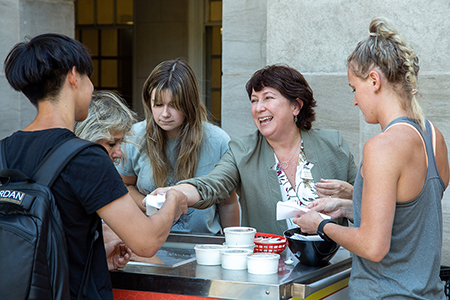 BSOS Deans
BSOS Deans
As head of one of the largest colleges at the University of Maryland, the dean of the College of Behavioral and Social Sciences (BSOS) strives to ensure that our nearly 6,000 undergraduate and graduate students receive the highest quality of education. She also manages the daily financial and administrative operations of the college, and serves on boards, councils, and committees within the college and the entire University of Maryland campus community.
Points of Pride
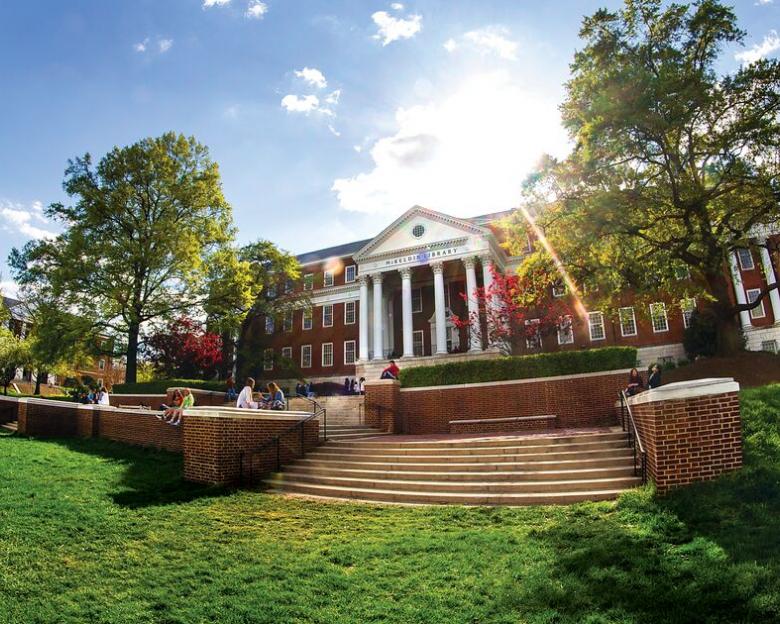
With more than 5,000 undergraduate students and more than 900 master’s and doctoral students, the College of Behavioral and Social Sciences (BSOS) is one of the largest and most academically challenging colleges at the University of Maryland.
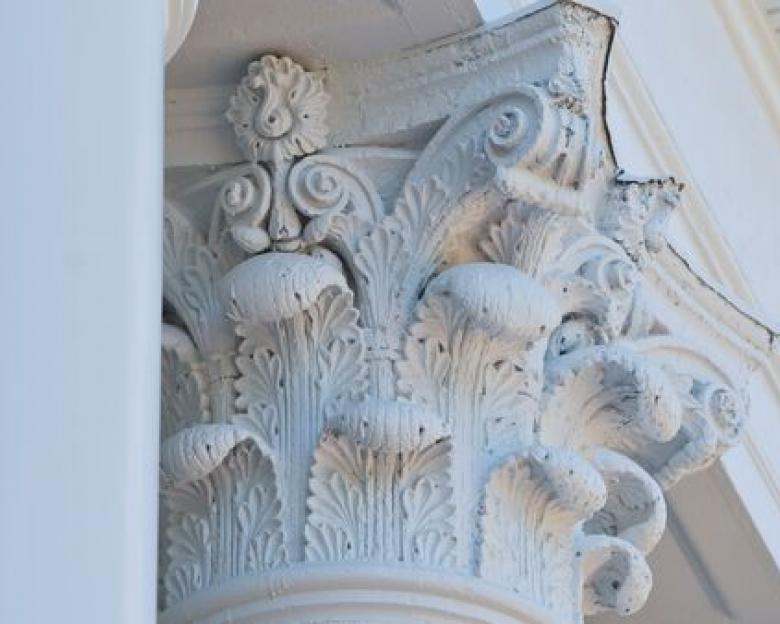
Many BSOS graduate programs and areas of specialty are ranked among the best in the nation, and in the world, according to U.S. News & World Report:
No. 1 Criminology
No. 1 Counseling (PSYC & EDUC)
No. 12 Audiology
No. 12 Geosciences (globally)
No. 14 Sociology of Population
No. 18 Speech-Language Pathology
No. 24 Economics
No. 24 Sociology
No. 28 Political Science
No. 30 Psychology
No. 33 Clinical Psychology
Among all of the undergraduate disciplines within the College of Behavioral and Social Sciences, only two disciplines are ranked by U.S. News & World Report–Economics and Psychology:
Economics: No. 34 overall; No. 11 among public institutions
Psychology: No. 43 overall; No. 22 among public institutions
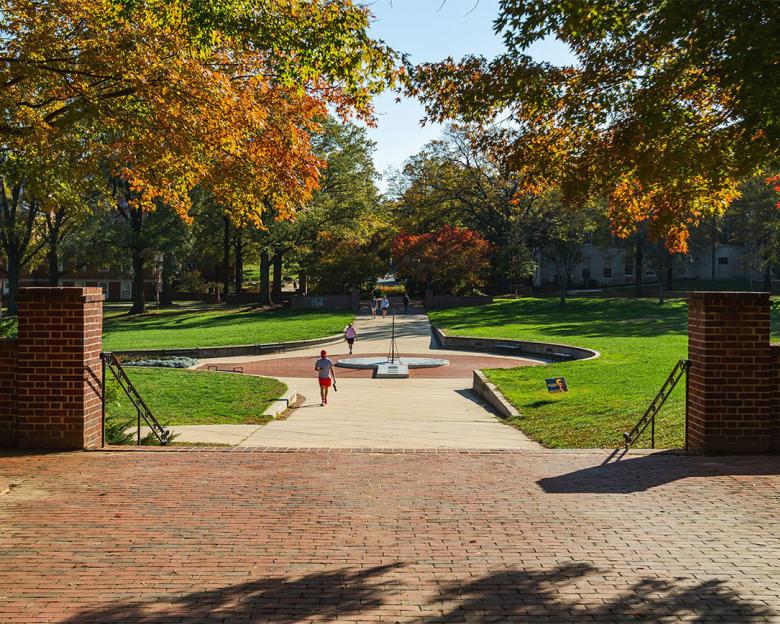
In 2022, our faculty brought in more than $64 million in external research funding from prestigious institutions including the National Institutes of Health, the National Science Foundation, NASA and the U.S. Department of Homeland Security.
Deans Medals
This Dean's Medal is intended as the highest honor the College of Behavioral and Social Sciences can bestow. The recipient will be a member of the College community with an outstanding record of sustained contributions. The candidate's career should be distinguished by a dedication to the fulfillment of the College’s goals and mission, by professional accomplishments, and by service. Particular emphasis will be placed on contributions that have had major impacts on the College. In addition to the medal, the recipient receives a $2,000 honorarium.
Harriet Presser, SOCY, Spring 2010
Mark Leone, ANTH, Spring 2010
Robert Schwab, ECON, Fall 2010
Joseph Lengermann, SOCY, Spring 2011
Gary LaFree, CCJS, Spring 2011
Suheil Bushrui, ANTH, Fall 2011
Laure Brooks, CCJS, Spring 2012
Thomas Wallsten, PSYC, Spring 2012
William Falk, SOCY, Fall 2012
Erve Chambers, ANTH, Spring 2013
Jonathan Wilkenfeld, GVPT, Spring 2013
Katherine Pedro Beardsley, DEAN, Spring 2013
Samuel Goward, GEOG, Fall 2013
Nan Ratner, HESP, Fall 2013
Sue Briggs, CIVICUS, Spring 2014
John Pease, SOCY, Spring 2014
John Townshend, GEOG, Spring 2015
Wendy Whittemore, ENSP, Spring 2016
Valencia Skeeter, AASD, Spring 2017
Robert Dooling, PSYC, Spring 2018
Carolyn Schupbach, DEAN, Spring 2019
Wayne McIntosh, GVPT/DEAN, Fall 2021
Sandra Gordon-Salant, HESP, Spring 2023
Colleen Worthington, HESP, Spring 2023
Ann Holmes, DEAN, Spring 2024
Historic Highlights
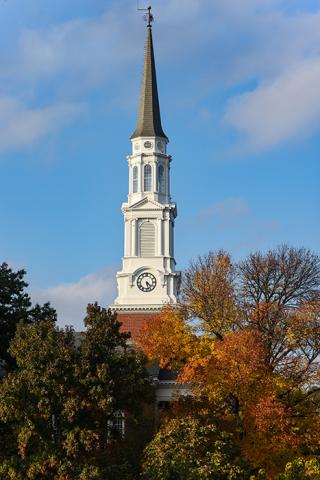
The College of Behavioral and Social Sciences is home to a diverse and celebrated community of faculty, staff, students, alumni, friends and collaborators. Featured here are memorials and stories that offer greater insight into some of the people and milestones that have shaped our college and inspired its future.
Learn more about the rich history of our college in our timeline.
Origins & Legacy: The Bahá'í Chair, the Gibran Chair and Professor Suheil Bushrui
Remembering Professor Thomas Schelling, Winner, Nobel Prize in Economic Sciences




